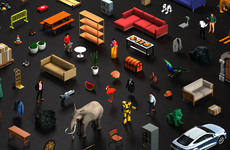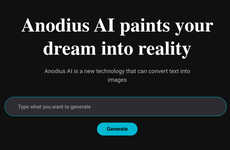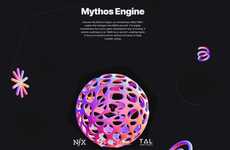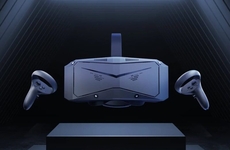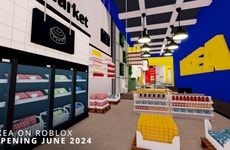
Anitya Seeks to Democratize Immersive Experience Development
References: accesswire
Anitya has introduced its first web-based 3D creation engine, a tool that is designed to simplify and democratize the development of immersive experiences in spatial computing, AR, VR, and MR. The platform aims to lower the barriers to entry typically associated with creating such content by eliminating the need for coding knowledge and providing customizable templates. This approach makes it accessible to a broader audience — including educators, architects, and businesses — who are interested in creating immersive and gamified experiences.
Key features of Anitya's web-based 3D creation engine include ease of use and quick deployment times, which set it apart from other tools that often require more technical expertise and resources. Anitya's partnerships, such as its collaboration with Lenovo and integration with Ready Player Me's avatar system, further enhance its appeal by expanding the platform's capabilities and applications.
Image Credit: Anitya
Key features of Anitya's web-based 3D creation engine include ease of use and quick deployment times, which set it apart from other tools that often require more technical expertise and resources. Anitya's partnerships, such as its collaboration with Lenovo and integration with Ready Player Me's avatar system, further enhance its appeal by expanding the platform's capabilities and applications.
Image Credit: Anitya
Trend Themes
1. No-code 3D Development - The advent of web-based 3D creation engines makes it possible to develop immersive experiences without the need for coding, opening up new possibilities for non-technical users.
2. Immersive Experience Democratization - By lowering the barriers to entry for creating AR, VR, and MR content, platforms like Anitya empower a broader range of professionals to engage in immersive computing.
3. Collaborative Technology Integrations - Partnerships with companies such as Lenovo and Ready Player Me enhance the capabilities of 3D creation platforms, allowing for more advanced and customizable experiences.
Industry Implications
1. Education Technology - With easy-to-use 3D creation tools, educators can more readily implement immersive and gamified learning experiences in their curricula.
2. Architecture - Architects can leverage web-based 3D engines to create detailed immersive visualizations and walkthroughs of their designs without needing extensive technical skills.
3. Corporate Training - Businesses can use accessible 3D creation tools to develop immersive training programs that enhance employee engagement and skill development.
4.9
Score
Popularity
Activity
Freshness





